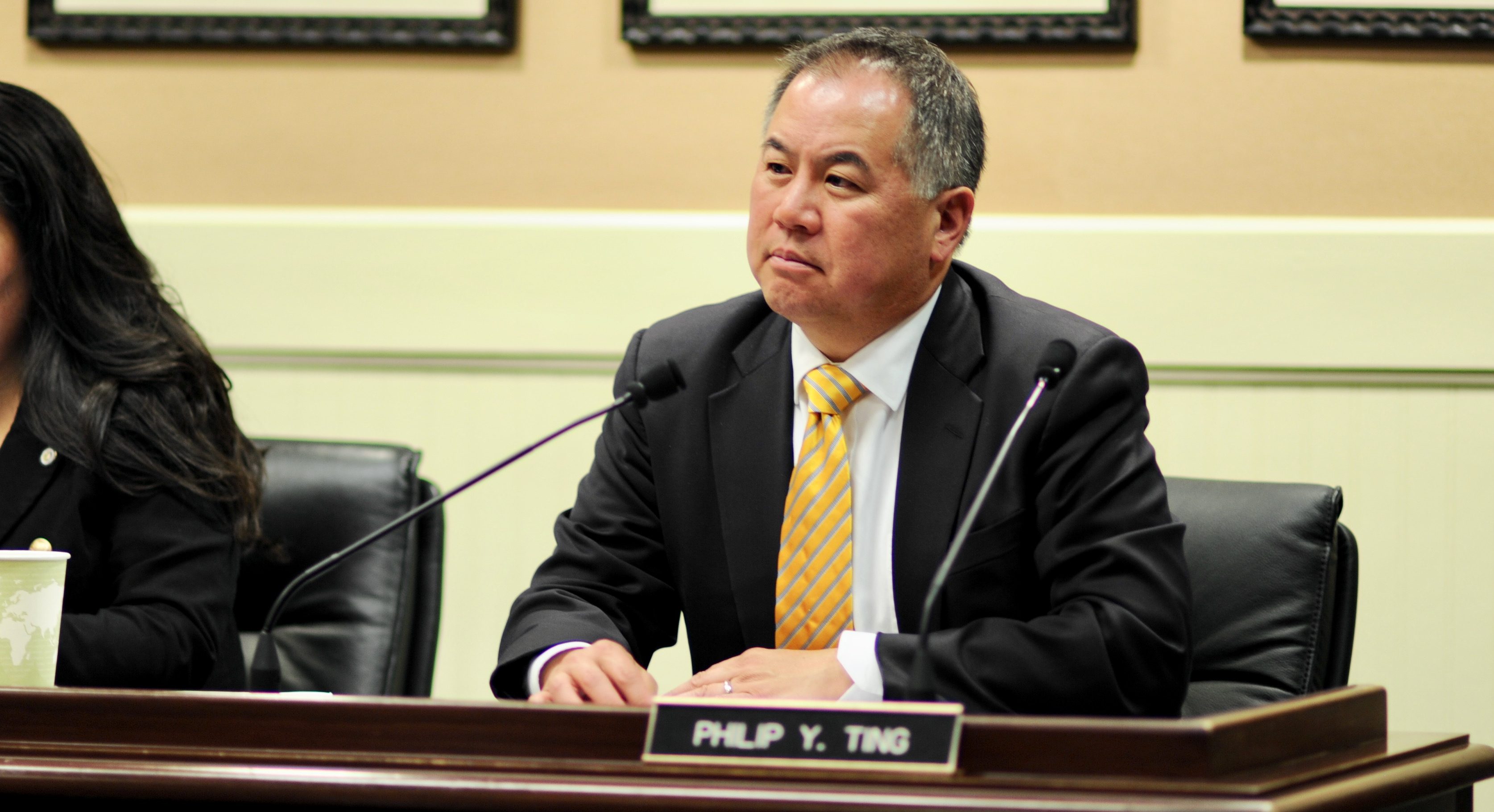
Governor Gavin Newsom and Senator Lena Gonzalez with signed SB 616 on October 4, 2023. (Photo: gov.ca.gov)
Paid Sick Leave Expansion Bill Signed Into Law By Governor Newsom
‘This is going to cost employers a lot and unions just don’t seem to care about the little guy employers’
By Evan Symon, October 4, 2023 4:45 pm
A bill to increase the minimum number of paid sick leave days a year for employees from three to five, as well as expand the minimum number of accrued sick days a year from six to ten, was signed into law by Governor Gavin Newsom on Wednesday.
Senate Bill 616, authored by Senator Lena Gonzalez (D-Long Beach) would specifically require employers to provide five sick days to employees who work 30 or more days within a year from commencement of employment, rather than the current three. In addition, the maximum number of paid sick days that can be carried over from one year to the next would also be increased from three to five. SB 616 also would increase the minimum number of total accrued paid sick leave days a year from six to ten for businesses that work under accrued days.
Gonzalez authored the bill earlier this year for multiple reasons. She said that more sick leave days are needed because of how the COVID-19 pandemic showed how such days off were needed, and that only three days a year was not enough as an existing safety net. Lower-income jobs, in particular, rarely went beyond the minimum number of paid sick leave days during the pandemic, with temporary increases in sick leave days often not being enough. As missing three days with unpaid sick leave cost many families grocery money for a month during the pandemic, an increase in paid sick leave days would be needed to help bridge the financial gap for families.
Gonzalez further backed up her point by saying that increased sick leave would actually benefit employers. In a fact sheet released earlier this year, Gonzalez said that “Paid sick leave can reduce employers’ overall costs by containing potential disease outbreaks and allowing workers to recover faster and return to work more productive. Studies have also shown that paid sick leave decreases the probability of job separation by at least 25%. Workers with paid sick leave are less likely to leave their jobs, saving businesses money on turnover expenses such as interviewing and training.”
While the bill has been heavily supported for those reasons by many employee groups and labor unions, including both the California Labor Federation and the Service Employees International Union (SEIU), there has also been significant opposition. Employers groups, such as the California Chamber of Commerce, have stressed that increasing the minimum number of paid sick leave days could financially hurt smaller businesses. The bill received much scrutiny from members of both parties, with testimony by many pointing out that the original expansion to seven days for minimum sick days, as well as an original carryover for accrued sick leave days of fourteen days, were too much for lawmakers to feel comfortable with. While it was passed in the Senate in May, it was only by a 27-9 vote with 4 abstentions, with signs that the Assembly could make it an even tighter vote.
SB 616 was then amended to cut back on the number of sick leave days, going down from seven to five, paid sick leave carryover days going down from seven to five, and accrued sick leave carryover going down from fourteen to ten. This, as well as questions over if documentation from a doctor to get the days off was needed, won over many in both houses. While the Senate still had a 27-9 with 4 abstention vote the second time around, many in the Assembly were turned around, with the vote coming to 52-18 with ten abstentions last month. SB 616 was then booted up to Governor Newsom, where he ultimately signed the bill into law on Wednesday.
“Too many folks are still having to choose between skipping a day’s pay and taking care of themselves or their family members when they get sick,” said Newsom. “We’re making it known that the health and wellbeing of workers and their families is of the utmost importance for California’s future.”
SB 616 signed into law by Governor Newsom
Other lawmakers and labor leaders also responded positively, including Senator Gonzalez who added that “Today marks an exciting moment as our Golden State enacts SB 616, which gives five guaranteed paid sick leave days to California’s workers. This reinforces our state’s values and commitment to protecting the health and well-being of our workers. As workers and families face illnesses that can disrupt their wages and livelihoods, California has delivered and stepped up to protect and expand paid sick leave, providing a critical safety net to all working Californians. I extend my gratitude to Governor Newsom for signing this bill into law, and to my colleagues in the Legislature, and all the labor supporters, small businesses, and community members who united to advocate for this critical legislation.”
However, business groups denounced the bill signing Wednesday. While they noted that the new version of the bill was not as bad as the original version, they said that the increase in paid sick days would only hurt smaller businesses and would generally hurt California’s economy in the long-term as a result.
“This new mandate will impose significant costs on California businesses, especially small employers already operating on slim margins,” said California Chamber of Commerce President and CEO Jennifer Barrera. “Many California businesses already offer more than three days of paid sick leave and can afford to do so. Our concern is that far too many small employers simply cannot absorb this new cost, especially when viewed in context of all of California’s other leaves and paid benefits, and they will have to reduce jobs, cut wages, or raise consumer prices to deal with this mandate. Small businesses are crucial to our local communities and the overall success of our economy. Continuing to add costs to their price of doing business creates a threat to California’s long-term competitiveness.”
Employment placement specialist Amanda Del Rio added, “The updated SB 616 does reduce the number of days they originally wanted, but it still does overall raise them. That isn’t what we would call great. This is going to cost employers a lot and unions just don’t seem to care about the little guy employers.”
SB 616 is due to go into effect starting on January 1, 2024.
- Bill to Require Law Enforcement Disclosure if AI Was Used To Help Write Reports - August 7, 2025
- Gov. Newsom Files FOIA Request To ‘Expose True Cost’ Of L.A. Federal Troop Deployment for Anti-ICE Riots - August 6, 2025
- California Redistricting: How Newsom’s Plan Will Demolish Hard Fought GOP Gains - August 6, 2025





Hurting CA’s small business —- on purpose
Hurting CA’s economy —- on purpose
EVERY SINGLE THING they do is the opposite of what they should be doing.
As you know.
Jerks. All of them.
Sigh!
Tell it, Show !
Couldn’t agree more !
It’s so much fun to be generous with other people’s money.
Senate Bill No. 616 was passed by the Democrat criminal gang in the legislature almost all of whom have never started or run a business. Senator Lena Gonzalez, who pushed Senate Bill No. 616, is one of those pampered Democrats who has never started or run a business. OpenSecrets and CalMatters reported that the big labor unions are Senator Lena Gonzalez’s major campaign donors at almost $1 million dollars. Would anyone be surprised if Senator Lena Gonzalez wasn’t also receiving payoffs to push the agenda of union bosses who live large at the expense of union workers? No doubt Democrat Senator Lena Gonzalez will at some point do what former Democrat Assemblywoman Lorena Gonzalez did and become a high paid union boss who lives large off the backs of union workers?
All smiles for Newsom. The message is “I just screwed over small business AGAIN!”.
There are actually clueless people who believe Democrats support small business. Hahaha!
Its the compound impact of all of these new laws
mandated $20/hr for fast foot workers – that cascades across the labor pool and now this on top of that?
liberalism is a mental disorder